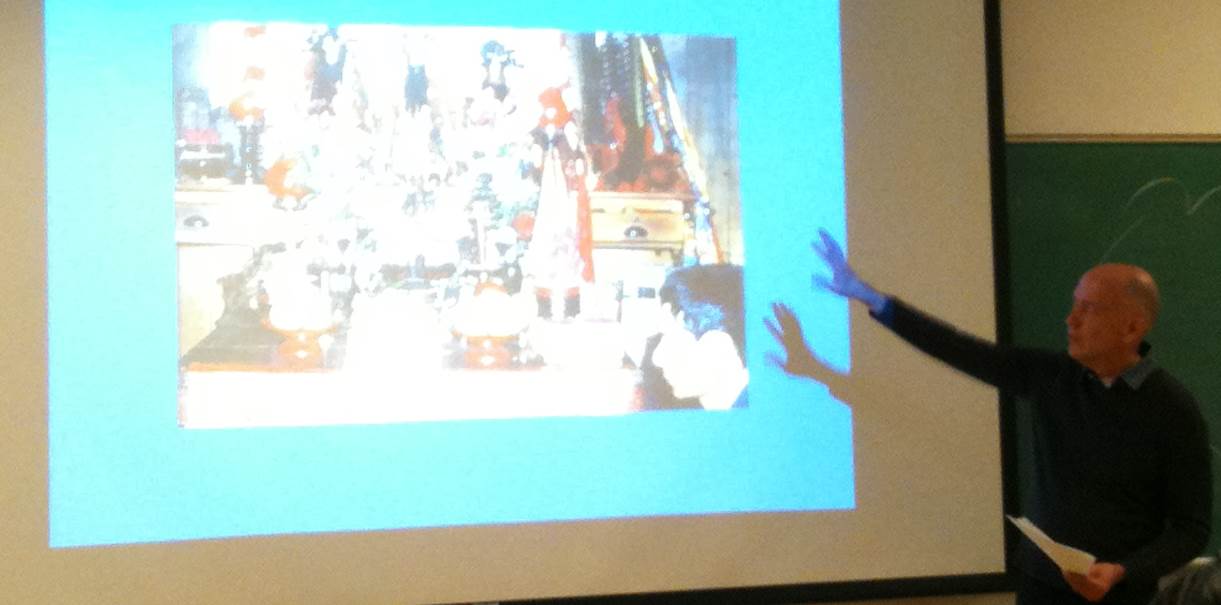Chair of Taiwan Studies “Two Types of Moral Instruction in Taiwan” Public Lecture Held at Ottawa University

In the 2014-2015 academic year, the Chair in Taiwan Studies is focusing on anthropological research of Taiwan, and as part of this a public lecture titled Two Types of Moral Instruction in Taiwan was held on October 23, 2014.
The lecture was presented by Charles Stafford, Professor of Anthropology at the London School of Economics, a specialist in the anthropology of China and Taiwan. He conducted his first major fieldwork project in the late 1980s in a Taiwanese fishing community where he examined the relationship between nationalist schooling and Taiwanese popular religion. In the early 1990s, he began to conduct research in mainland China on issues related to kinship, religion, and Chinese historical consciousness. He became especially interested in rituals and practices of "separation and reunion" which help to structure the flow of social life in rural communities. More recently, Professor Stafford has conducted fieldwork, funded by the ESRC and the British Academy, on learning and economic life in rural mainland China, Taiwan, and the USA. He is currently working on a project comparing economic psychology in rural China and America.
In his public lecture, Prof. Stafford spoke about his research in Angang: “… in rural Taiwan, in the mid-1980s, the children I met were moving back and forth between two distinct – and yet interconnected – moral systems. On the one hand, there was the broadly ‘Confucian’ system they encountered via schooling. On the other hand, there was the broadly folk or ‘Daoist’ system they encountered outside of school: in their homes, in the back lanes and alleys of the villages where they lived, at spirit medium altars, and so on.” Prof Stafford is continuing to explore the articulation between these two systems, which he sees as being characteristically Taiwanese. He wants “to argue that the ‘goodness’ of Taiwan today is a complex kind of goodness, one that draws heavily on folk or Daoist understandings of the complexities of human nature.”
This interesting lecture was followed by a group discussion and QA with the audience.
